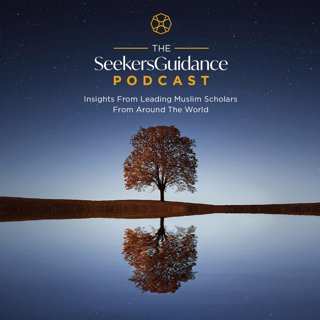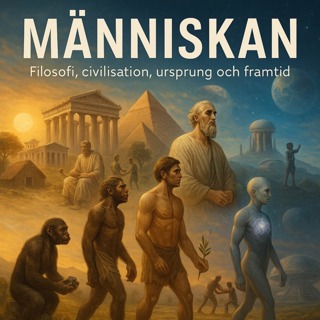
02: Faith & Certitude – Renewing Religion: An Overview of Ghazali’s Ihya – Shaykh Faraz Rabbani
In this epoisode, Shaykh Faraz gives an overview of the second chapter from Imam Ghazali’s Ihya Uloom ud-Din, Foundations of Islamic Belief. Shaykh Faraz highlights the what Muslims believe, how faith is nurtured and the understanding of faith. He concludes with an example of the Prophetic through one of narrated supplications of Prophet Muhammad (peace and blessings be upon him). Shaykh Faraz tells us that it is personally obligatory for every Muslim to know with clarity and certitude what is necessary to believe about Allah, His Messenger (peace and blessings be upon him), and the transmitted articles of belief. Below are some resources of courses and a podcast on Islamic beliefs, provided by SeekersHub. All resources are free of charge. Shaykh Faraz then highlights the point Imam Ghazali makes about how faith is nurtured. He says that faith is not nurtured by mere study. Rather, it is nurtured by submission and by turning to Allah Most High in devotion. This is done through living faith in one’s life, by acquiring virtuous traits and by ridding oneself of blameworthy traits. Then, Shaykh Faraz outlines the levels of faith. The first level is mere faith; accepting without understanding. The second level is faith with understanding. The third level is living faith with consciousness. In understanding and studying the proofs of Islamic beliefs, there is a strengthening of faith, Shaykh Faraz tells us. He highlights the following resources through SeekersHub (all free): Courses [1] Understanding Islamic Beliefs: Dardir’s Kharida Explained [2] Ghazali’s Foundations of Islamic Beliefs http://seekershub.org/home/course-catalog-t12017/#beliefs [3] Allah’s Beautiful Names Explained http://seekershub.org/home/course-catalog-t12017/#livingreligion Podcast Why Islam is True http://seekershub.org/podcast/names/why-islam-is-true/ Shaykh Faraz then clarifies the relationship between iman (faith) and islam (submission). He tells us how they intertwine and intersect and their different levels. Finally, Shaykh Faraz concludes with Prophetic supplication that portrays faith: (يا حي يا قيوم برحمتك أستغيث أصلح لي شأني كله ولا تكلني إلى نفسي طرفة عين) (Oh Living! Oh Sustaining! In Your Mercy do I seek urgent aid! Rectify all my affairs — and do not leave me to myself for a blinking of an eye.) In this brief overview of Imam Ghazali’s opus magnum, Ihya Uloom ud-Din (Renewing the Religious Sciences), this series will serve as blueprint for how the believer can bring to life their religion. It will aim to help the believer to not just practice the form of the religion properly, but to also practice it with excellence. Join our Ramadan 2017 program: #RamadanRenewal, in-person at SeekersGuidance Toronto or online through the SeekersGuidance Global platform. For more details, visit: https://seekersguidance.org/ramadan. Checkout all of the SeekersGuidance podcasts by visiting https://seekersguidance.org/podcasts/
29 Maj 201724min

02: Faith & Certitude – Renewal By The Book: Daily Quran Tafsir Based on Imam Ghazali’s Ihya – Shaykh Faraz Rabbani
In this episode, Shaykh Faraz highlights the closing verses of Surat al-Baqara, verses 284-286, and how they correspond to the second chapter of Ghazali’s Ihya on faith. He tells us about the verses’ great merit, key underlying meanings as they relate to faith and certitude, and some guiding advice on how to benefit from these verses. Shaykh Faraz relates to us the hadith of the Prophet Muhammad (peace and blessings be upon him) that: “whoever recites the closing verses from Surat al-Baqara at night, they will be sufficient for them. He explains that sufficiency here is unconditional, meaning that they are sufficient in everything. Shaykh Faraz explains how verse 285 of Surat al-Baqara is an affirmation of faith. He tells us that faith is the confirmation of truth as transmitted, and entails complete slavehood and submissiveness to God, as well as complete acceptance. Shaykh Faraz also highlights how Islam has the balance of ease and responsibility. The verses tell us that no soul is responsible for more than it is able. The verses call us to turn to Allah in faith, seeking pardon, forgiveness and mercy. In this series Shaykh Faraz will be looking at points of reflection from key verses in the Quran. The series will follow the thematic order of Imam Ghazali’s Ihya Uloom ud-Din (Renewing the Religious Knowledges). The aim is to connect the key verses of guidance from the Book of Allah with the blueprint of renewal, the Ihya, so that we experience a renewal by The Book. Join our Ramadan 2017 program: #RamadanRenewal, in-person at SeekersGuidance Toronto or online through the SeekersGuidance Global platform. For more details, visit: https://seekersguidance.org/ramadan. Checkout all of the SeekersGuidance podcasts by visiting https://seekersguidance.org/podcasts/
28 Maj 201720min

01: Knowledge – Renewing Religion: An Overview of Ghazali’s Ihya – Shaykh Faraz Rabbani
In this lesson, Shaykh Faraz gives an overview of the first chapter from Imam Ghazali’s Ihya Uloom ud-Din, the chapter on knowledge. Shaykh Faraz explains Imam Ghazali’s statement that “the purpose of religion is knowledge – knowing Allah”. Shaykh Faraz further explains that all the forms of religion require knowledge. A believer needs to know how to submit to Allah, how to seek Allah, and how to be sincere and beloved to Allah. He also gives some definitions of knowledge, and which knowledge Imam Ghazali is referring to. Shaykh Faraz also discerns between knowledge which is personally obligatory and that which is communally obligatory. Finally, Shaykh Faraz highlights that knowledge is sought through adab. The fruits of knowledge is becoming a “Lordly scholar”, who is able to turn their heart to Allah and help guide others to Allah as well. The great opportunity of knowledge is that it is the Prophetic inheritance. Action without knowledge is toil without fruit. Therefore, through knowledge one is able to fulfill the potential that Allah has created us for and called us to. In this brief overview of Imam Ghazali’s opus magnum, Ihya Uloom ud-Din (Renewing the Religious Sciences), this series will serve as blueprint for how the believer can bring to life their religion. It will aim to help the believer to not just practice the form of the religion properly, but to also practice it with excellence. Join our Ramadan 2017 program: #RamadanRenewal, in-person at SeekersGuidance Toronto or online through the SeekersGuidance Global platform. For more details, visit: https://seekersguidance.org/ramadan. Checkout all of the SeekersGuidance podcasts by visiting https://seekersguidance.org/podcasts/
28 Maj 201722min

01: Knowledge & Guidance – Renewal By The Book: Daily Quran Tafsir Based on Imam Ghazali’s Ihya – Shaykh Faraz Rabbani
In this episode, Shaykh Faraz highlights the oft-repeated verse and supplication from Surat al-Fatiha, verse 6: (ٱهْدِنَا ٱلصِّرَٰطَ ٱلْمُسْتَقِيمَ) – (Guide us to the straight path). Shaykh Faraz connects this verse with the first of chapter of Imam Ghazali’s Ihya, the Book of Knowledge. He explains that one asks guidance towards what they seek. As believers we seek Allah Most High. Imam Ghazali also defines beneficial knowledge as, knowledge that guides one to Allah. Therefore from that aspect, asking for guidance entails asking for beneficial knowledge. Shaykh Faraz continues on to make more linkages between sought guidance and beneficial knowledge. Shaykh Faraz concludes by explaining why seeking guidance in all things entails seeking knowledge in all one’s life. In this series Shaykh Faraz will be looking at points of reflection from key verses in the Quran. The series will follow the thematic order of Imam Ghazali’s Ihya Uloom ud-Din (Renewing the Religious Knowledges). The aim is to connect the key verses of guidance from the Book of Allah with the blueprint of renewal, the Ihya, so that we experience a renewal by The Book. Join our Ramadan 2017 program: #RamadanRenewal, in-person at SeekersGuidance Toronto or online through the SeekersGuidance Global platform. For more details, visit: https://seekersguidance.org/ramadan. Checkout all of the SeekersGuidance podcasts by visiting https://seekersguidance.org/podcasts/
27 Maj 201719min





















